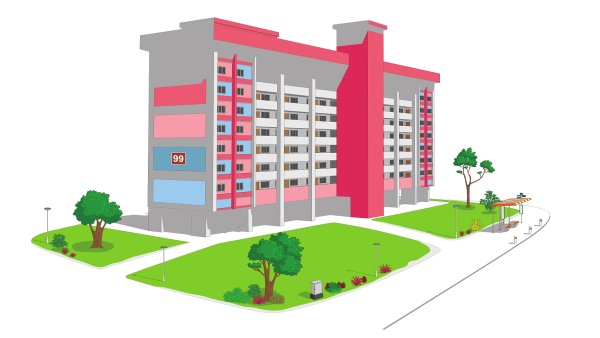By Giles Tremlett, The Observer
The woman behind the counter and her customer at the Valpan bakery on Madrid's Narváez Street were discussing the harsh realities of life in a country that, with its looming bank bailout, has become the latest casualty of Europe's interminable debt crisis.
"This is the only day of the week I get off now," said the customer, a waitress still wearing her black scooter helmet. "A friend has just found a summer waitressing job and it is the same there. Six days a week and eight-hour shifts which, inevitably, become nine hours without overtime, but she's not about to complain. She's got a job."
"It is like that here. They've cut salaries," said the baker's assistant as she dealt out pastries. "It is time someone stood up to all this."
But as the eurozone's finance ministers began working out the conditions to be imposed on Spain for lending it €40bn or more to rescue its banks, the short-term future for the general population looked even bleaker yesterday.
Austerity is already harsh in what has traditionally been the continent's most euro-enthusiastic country. Unemployment, now affecting one in four workers, is set to continue well into next year.
In the Spanish capital, a largely conservative place, the mood is of resignation rather than revolution. Round the corner from the bakery, a teenage delivery boy who works in a fruit shop gives his verdict on what went wrong. "I don't really understand it, but I get the feeling some people have lived liked kings," he says. "And we've all been idiots."
There will be no Athens-style protests in Madrid – or not soon, although the ongoing battles between balaclava-wearing miners and police in northern Asturias are proof that anger is spilling over elsewhere. Photographers seeking dramatic pictures on protest days travel to Barcelona, where radical leftwingers see police persecution in a wave of recent arrests, while police say they are picking up those behind street violence during strikes.
With the rescue money in Spain's "bailout lite" looking likely to go straight to former savings banks, the roots of its banking problem lie fully exposed. A decade-long housing boom, fuelled by cheap credit thanks to low interest rates needed by Germany, has left the banks stuffed with toxic real estate.
Spaniards must pay for this, but they are not to blame. They largely continue to pay their mortgages, relying on family when unemployment and wage cuts make it impossible to meet their bills.
The hole has been created instead by property developers and land speculators, together with the senior bank staff who made the loans. And it has been left to fester for the past four years, ever since the property bubble burst. "They kicked the can down the road," admits a government minister in private.
But many can see that the money that rolled into Spain during the decade of cheap credit was sometimes spent irresponsibly. "The whole country went over the top – including trades unions, businessmen, bankers and politicians," said Juan Roig, owner of the successful Mercadona supermarket chain. "What we need to do is get going and get to work."
Roig hails from eastern Valencia. The region's multiple corruption cases, broken banks and publicly funded white elephants have turned it into a symbol of much that has gone wrong in Spain. An unused, brand-new airport at Castellón, a failed theme park in Benidorm and empty holiday homes are all proof of money wasted during the bonanza years.
Public austerity began to bite two years ago, when Socialist prime minister José Luis Rodríguez Zapatero suddenly performed a U-turn on his expansion of the welfare state. Labour laws were loosened, civil service salaries cut and the pension age shifted backwards.
Under the People's party (PP) of Mariano Rajoy, which took over in December, the intensity of austerity has risen. Health and education cutbacks are now part of a relentless drive towards deficit-cutting. Labour reform, meanwhile, is helping drive down wages.
Improved productivity and the fact that, after years of importing goods and cheap loans to feed an insatiable wave of consumption, Spain will soon be exporting more than it imports are signs that the drive towards internal devaluation is, slowly, working. But this comes at the terrible price of almost 6 million people unemployed.
In many ways, indeed, Spain is behaving like a model pupil of German chancellor Angela Merkel – and Rajoy is a genuine believer in austerity and budget-balancing. Yet the only concession Spain has received so far from Europe is a slight relaxation of its deficit targets, from the impossible aim of cutting it by two thirds in two years to the still difficult aim of doing this over three years.
Rajoy has finally concluded that Spain's main problem is the euro. Badly structured and with a malfunctioning central bank that always favours the big states of the centre, it is still a half-baked project. Either that is fixed, or the euro is doomed.
The government strategy has been to turn Spain's weakness into strength. Spain is too big a problem. If it is allowed to fall, Rajoy's ministers warn, Spain will bring the euro down with it.
"Who holds our external debt," asked budget minister Cristóbal Montoro recently, pointing indirectly at German banks. "Those who are most interested in things going well for Spain are the creditors. Or do you think they don't want to get their loans back?"
"If Spain falls, the euro falls," a government insider warns. "There is not enough money at the IMF and in the European rescue funds to bail out the Spanish state."
The message from Madrid is that bailing out banks is not enough. That temporarily fixes one problem, but only a fiscal and banking union that forces other eurozone countries to guarantee Spain's debt will persuade the markets that it is a safe long-term bet.
"Europe needs fiscal integration with a fiscal authority and banking integration, a banking union with eurobonds, a banking supervisor and a European guaranteed deposit fund," Rajoy said last week. A bank bailout does not provide that.
"The future of the euro is going to play out in the next few weeks in Spain and Italy," finance minister Luis de Guindos has warned.
A bank bailout may do little more than postpone that.
|
austerity |
uskrovnění, úsporná opatření |
|
bailout |
záchranný plán |
|
bail out |
zachránit z finančních problémů |
|
balaclava |
kukla (přes hlavu) |
|
blame |
dávat (komu) vinu |
|
bleak |
bezútěšný |
|
be not about to |
nehodlat něco udělat |
|
bite |
projevit se (negativně) |
|
bonanza |
náhlá prosperita |
|
burst |
puknout |
|
casualty |
oběť |
|
concession |
úleva, zvýhodnění |
|
cutback |
škrt |
|
doom |
odsouzený k záhubě |
|
external debt |
zahraniční dluh |
|
fester |
kvasit |
|
get going |
hnout se(bou) |
|
get off |
vypadnout, mít volno |
|
guaranteed deposit fund |
fond pojištění vkladů |
|
hail |
volat na pozdrav |
|
harsh |
tvrdý, drsný |
|
housing boom |
růst výstavby |
|
impose |
uvalit |
|
insatiable |
nenasytný, neukojitelný |
|
kick the can down the road |
odkládat problém na neurčito |
|
lite |
nízkokalorický, odlehčený |
|
looming |
rýsující se, hrozící |
|
play out |
odehrávat se |
|
Spaniard |
Španěl |
|
spill over |
přetékat |
|
stand up to |
postavit se něčemu |
|
stuffed with |
nacpaný něčím |
|
welfare state |
sociální stát |
|
white elephant |
přibl.: danajský dar, nákladný projekt bez návratnosti |
Chcete číst dál?
Ještě na vás čeká 0 % článku.
S předplatným získáte
- Web Ekonom.cz bez reklam
- Možnost sdílet prémiový obsah zdarma (5 článků měsíčně)
- Možnost ukládat si články na později
Odesláním objednávky beru na vědomí, že mé osobní údaje budou zpracovány dle Zásad ochrany osobních a dalších zpracovávaných údajů, a souhlasím se Všeobecnými obchodními podmínkami vydavatelství Economia, a.s.
Beru na vědomí, že budu dostávat obchodní sdělení, týkající se objednaných či obdobných produktů a služeb společnosti Economia, a.s. Odmítnout zasílání
Můžete si prohlédnout kompletní nabídku,
která obsahuje i tištěné vydání.
Pokud potřebujete poradit, napište nám, nebo zavolejte na +420 233 071 111
Pokud potřebujete poradit, napište nám,
nebo zavolejte na +420 233 071 111
 Aktuální číslo časopisu Ekonom
Aktuální číslo časopisu Ekonom

 Připravujeme platbu, vyčkejte prosím.
Připravujeme platbu, vyčkejte prosím. Platbu nelze provést. Opakujte prosím akci později.
Platbu nelze provést. Opakujte prosím akci později.



